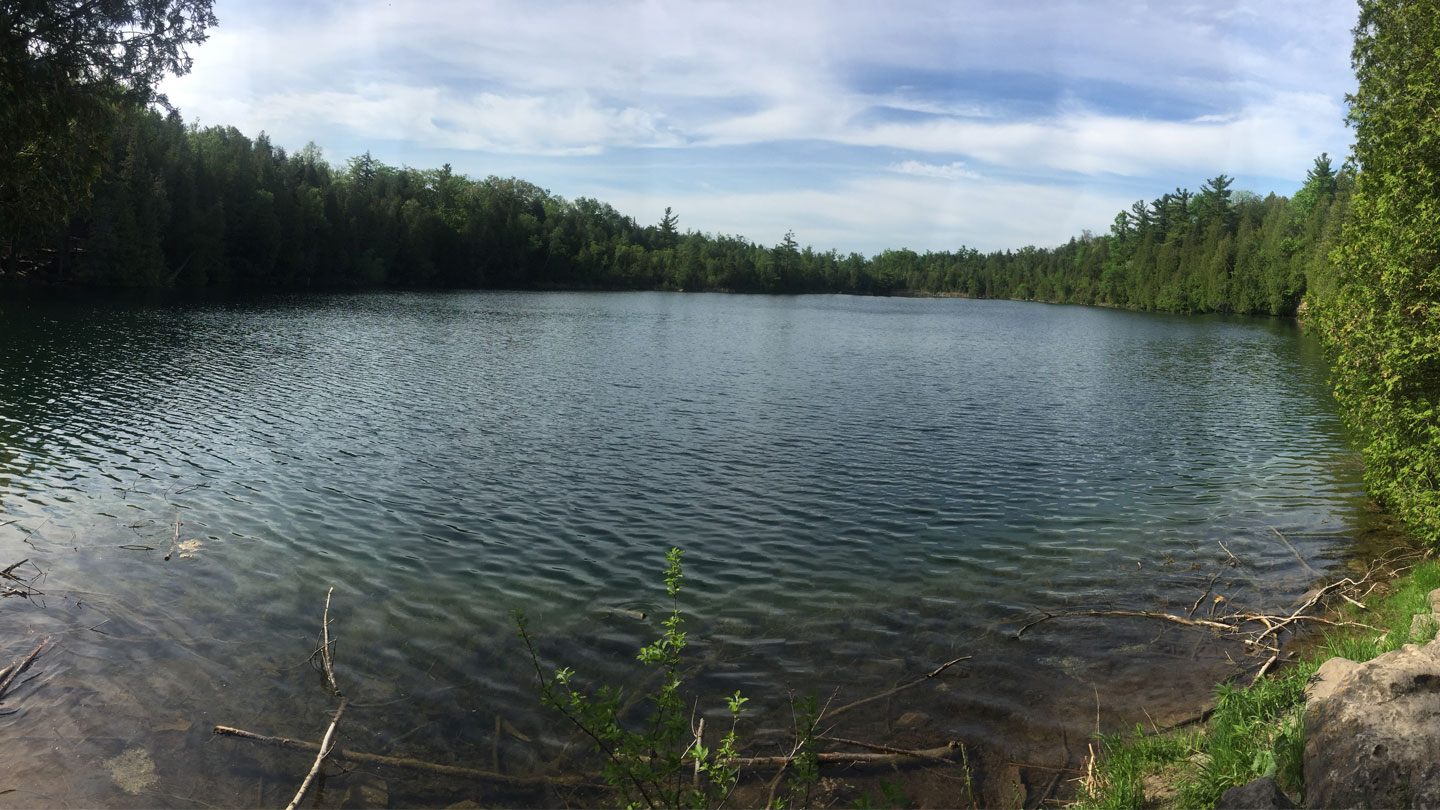If you google "The Most Important Debates of the 21st century" you will find a range of widely debated topics by various philosophers and academics. The 'Anthropocene Start Date' debate was never mentioned but I just wanted to let you know. Anyway, let's have a chat about the Anthropocene and why this debate, maybe, should be on that google search.
The Anthropocene is argues to be a new geological Epoch describing a period where human activity has has an undeniable impact on the environment. The reason why the Anthropocene is such a debated topic (amongst Geographers (I promise)) is because two questions need to be answered: 1. Is the Anthropocene a definable Epoch? and 2. If it is, when does it start? Due to a recent discovery of lake sediment in Canada, an answer has (pretty much) been found.
Lake Crawford's sediment provides the equivalent of a history book with details of the past centuries' environments. This is important because of the track record of environmental changes that can be seen in the lake sediment essentially proving the changes in the environment. This change aids in the argument for the GSSP for the Anthropocene along with proving the Anthropocenes existence.
Multiple indicators can be argued for directly resembling the presence of human activity. Ash, plutonium, plastic and high concentrations of lead are all markers for human activity. The sediment in Lake Crawford depicts large changes in some of these indicators post 1950 (nuclear bomb explosion) which is one of the strongest argued dates for the beginning the Anthropocene. The presence of these indicators at a geological point prove that the argument for a need of a GSSP is met at Lake Crawford in Canada, thus, if it is accepting, being that acceptable indicator for beginning of the Anthropocene.
This discovery, is to put it frankly, groundbreaking for the Anthropocene Epoch debate. Not only in terms of providing a marker for its beginning, but for many people, providing a marker for its existence which is an important step in science. Having a place and a point in time to say that, "from this point forward, the influence of humankind on earth is evident", is so significant for how we live our lives. This puts into perspective (especially to the climate change sceptics out there) the impact that humans are having on the environment. Defining the Anthropocene allows for a mentality shift take place by humans as it is right in front of us, pretty much inarguable.Lake Crawford sediment breakthrough first occurred around July, 2023. The only obstacle now is arguing for it through a very stringent commission as to how it relates to the Anthropocene and allowing it to be a defined Epoch. I know, annoying right, even through its so obvious and anyone with two brain cells can see that we are causing problems to the environment. Sorry, my inner environmentalist came out. But. We can only hope that people can come an agreement in order to put a stop to ignorant governments believing nothing is wrong and everything is fine. Cause clearly something is wrong AND CLEARLY EVERYTHING IS NOT FINE.
Sorry...



Comments
Post a Comment